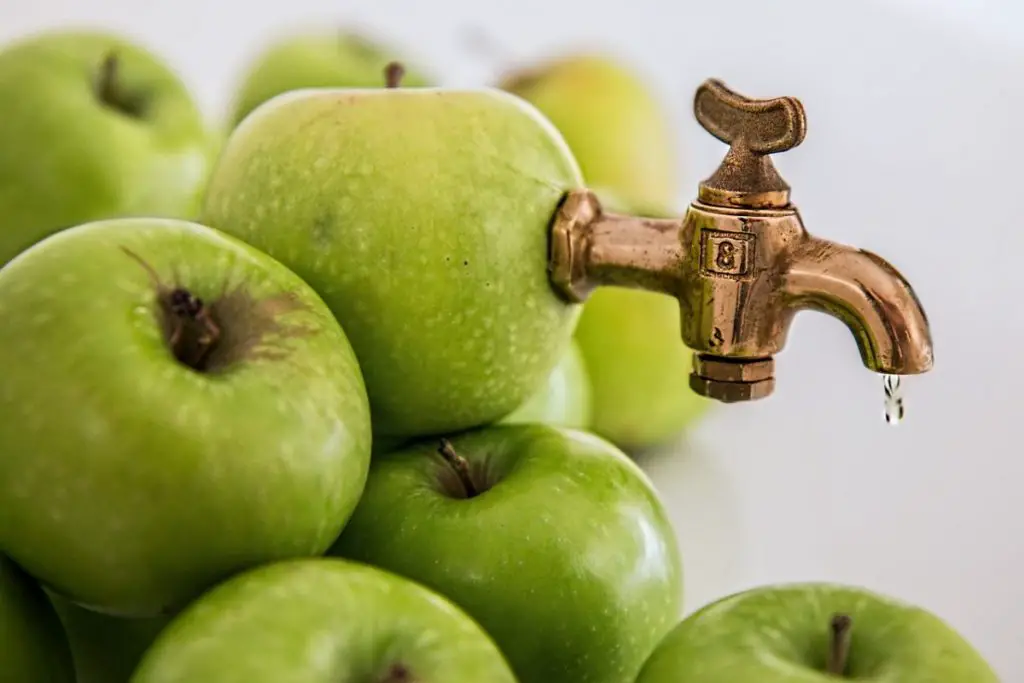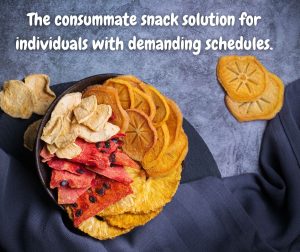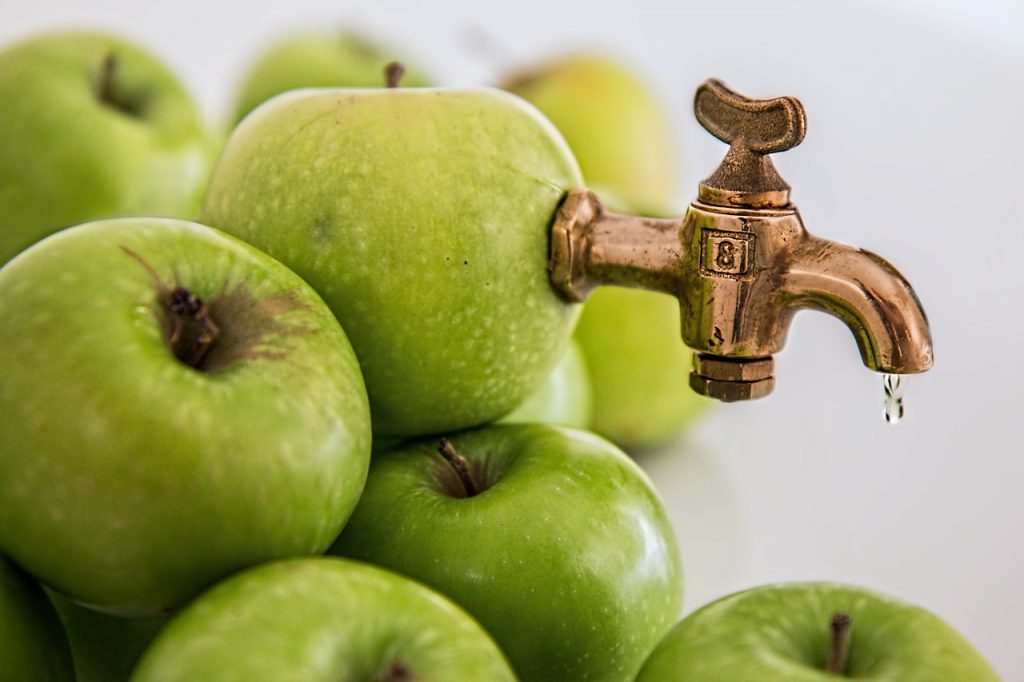
Which would you choose for your child – a 12-ounce bottle of Coca-Cola, or a 12-ounce glass of apple juice?
I can almost see you roll your eyes. It’s not rocket science, right? Of course, you’ll go for the apple juice – it’s fruit! And fruits are healthy.
But stop right there… do you think you made the right choice?
There’s no way to break this to you gently – you didn’t. The correct answer is neither.
It’s easy to understand why you think of fruit juice as healthy. It comes from fruit, after all. But there is one component to fruit juice that’s often ignored – sugar.
A 12-ounce glass of apple juice has almost the same amount of sugar as a 12-ounce bottle of Coca-Cola. And, if you need some more bad news, here it is… sugar is sugar, whether it’s fructose, sucrose, lactose, glucose, galactose or any other ‘ose’!
Now let that single piece of information sink in.
Of course, fruit juices do contain antioxidants, vitamins, and minerals so they’re not all bad. However, the amounts are so small they don’t compensate for the large amounts of sugar. The bad outweighs the good. It’s just not worth it.
The bottom line: fruit juice is not healthy.
So, should we be giving our kids fruit juice? No.
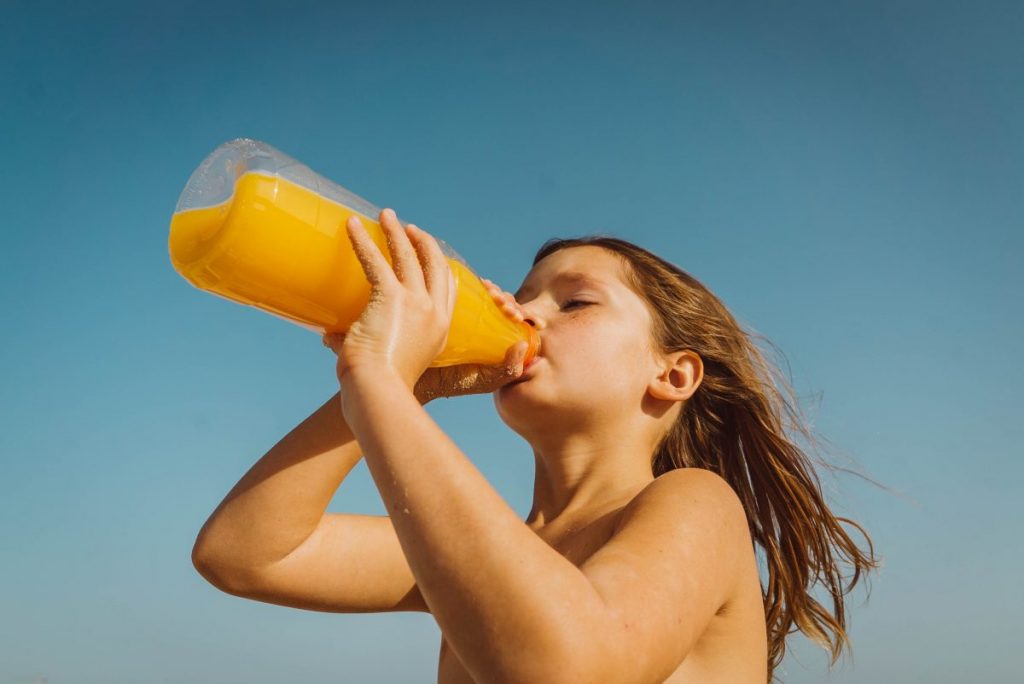
If you don’t believe me, I have health experts to back me up.
Most parents will tell you their kids love juice. It tastes good, often comes in convenient and child-friendly packaging, and seems much healthier than soft drinks, sports drinks or other sweet beverages. It comes from fruit, after all. But we also know it’s high in sugar, and so can contribute to obesity and dental problems.
We asked five experts in nutrition, dietetics, medicine and dentistry whether or not we should let our kids drink juice:
Four out of five experts said no

Here are their detailed responses:
Bec Reynolds Nutritionist
Keep fruit juice as the exception, not the rule. While the Australian Guide to Health Eating specifies a serve of fruit can be quantified as 125 mLs juice, it recommends whole fruit is primarily eaten, rather than drinking juice. This is because whole fruit is more filling, and better for your teeth.
Fruit juice is low in fibre and so it is easy to drink too much, compared to eating the whole fruit. For example one medium orange contains about 285 kilojoules and four grams of fibre compared to one 250mL juice popper which contains closer to 300-500 kilojoules and less than one gram of fibre, depending on the brand.
Fruit juice is classified as a sugar-sweetened beverage, along with soft drink, sports drink and other sugar sweetened beverages. In intervention studies in children and adolescents that replace sugary drinks with drinks lower in calories, they experience less weight gain.
David Manton Dentist
There are two main problems with fruit juice and teeth – first, the sugar (either from the fruit, or added) feeds bacteria in the plaque on the teeth, that make acid which causes dental decay. Nearly half of Australian six year olds have at least one hole in their teeth, and drinks like fruit juice are part of the cause.
Second, the acid content of many fruit juices can dissolve the hard outer coating of the teeth (the enamel) and once it is dissolved, it can’t grow back.
Research suggests nearly four in five Australian children have signs of erosion in their primary (baby) teeth, and one in four in their permanent teeth. If you decide to let your child drink juice, then having it with a meal is the healthiest for teeth, avoiding drinking between meals.
Kacie Dickinson Dietitian
Too much sugar in the diet is linked to dental cavities and unhealthy weight gain throughout childhood. Based on this evidence the World Health Organisation recommends limiting foods and drinks containing free sugars, including fruit juice.
Fruit juices are not the same as fresh fruits and it’s better for your child to try to eat fruit rather than drink it. As fibre and other components of fresh fruit are removed from juice, the amount of sugar is more concentrated and therefore higher in fruit juice.
As fruit juices are readily accepted by children (they taste sweet), often conveniently packaged and therefore easy for kids to drink, not letting your kids drink juice can be difficult for parents.
But fruit (and vegetable) juices account for the biggest proportion of free sugar intake from beverages among kids 2-8 years old in Australia. So reducing intake of fruit juice is a good place to start if you want to reduce your child’s sugar intake.
Water is always the best drink for children but if you are stuck with what to offer your child (>12months) instead of juice, offer fresh fruit instead to role model good habits eating whole or fresh foods.
Fruit juice can be kept for special occasions, and offered in small amounts (1/2 cup or less), but it is not an essential part of a healthy diet for kids.
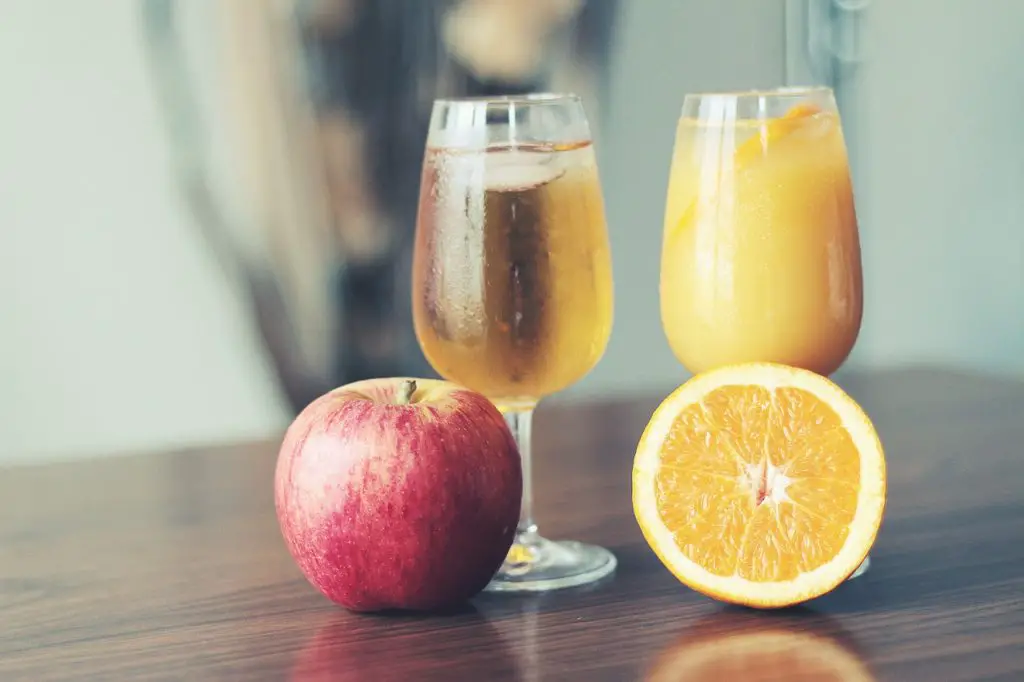
Sandro Demaio Doctor
When they’re wrapped in a peel or a skin, fruit sugars are not a health concern. In fact, the sugars in fruit were probably nature’s way of encouraging us to eat the fruit to begin with. Fruits like oranges, apples and pears contain important fibre. This roughage is healthy in many ways.
First it slows our eating down; it’s easy to drink a glass of juice squeezed from seven apples, but much harder to eat those seven pieces whole. Second, it makes us feel full for longer. And third, it slows the release of the sugars from the fruit into our bloodstream, thus allowing our bodies to react and use the energy appropriately, reducing our chances of weight gain and related health challenges.
It’s also great for gut health and associated with a range of other health benefits. Juicing involves the removal of most of that fibre and even the loss of some of the important vitamins.
What we don’t lose, though, are the 21 grams or more than 5 teaspoons of sugar in each glass. In short, you can eat whole fruit with confidence but should avoid juice.
This article was originally published in The Conversation
The experts have spoken. Fruit juice, despite having the word “fruit” in it, is not healthy. Whole fruit is a totally different matter. It contains the pulp and fibre that not only fills us up’, it also slows down the absorption of the fruit sugars. Eating fruit and whole fruit is an important part of our total diet. Fruit juice is not.
So the next time you’re tempted (or asked), think about healthier alternatives – like water. Come to think of it, the next important question should be: is your kid drinking enough water each day?

